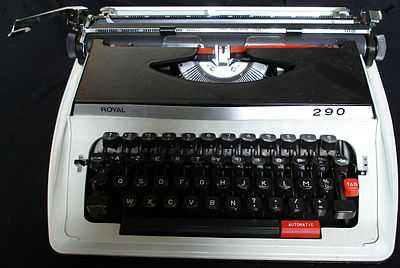Sport research/Writing
< Sport research
You may have some really good research, but if you can't articulate it well it's not going to go very far, and you want to do it justice.
As I see it there are more or less four parts to writing.
- structure,
- flow,
- accuracy, and
- the argument.
The structure of the writing will depend largely on it's purpose. A common practice is to build up the writing from a skeleton of the points you want to make. Start with headings, then put in sub-headings. Think about what you need to say in each section and add the key points that fit. Then start to build the arguments in. Structure provides discipline and this can help to ensure you include the salient points and leave out unimportant information. The structure can also assist in letting your writing flow.
When someone else reads your work it should feel like it flows. Flow is not just about sentence structure but about how your work tells a coherent story. Flow is about a progressive argument without too many tangents. Support the statements you are making, but be succinct. Reading out aloud and having others read your work will assist with this. And be prepared to re-write, and re-write your work. Writing is a skill, that like many sports, takes deliberate practice to get better at.
Importantly your writing must be accurate. Eliminate all the technical errors you can (punctuation and spelling) but also ensure you cite references accurately. Always take care that what you claim your reference supports is actually the true.
There is almost always a purpose to writing and in scientific writing you are often testing an idea or finding an answer to to a question. It's important that everything you write is going towards supporting that question or answer. I recommend students (well everyone) make a statement about what the question they are asking is. Then keep checking back to that question. Ask yourself; "Is what I am writing now, related to that question?" If you have strayed too far, it may time to delete the sentence and get back on track. This research question you have, along with the structured skeleton at the start should keep you on track. Discipline may be required to ensure this is so. The arguments you make should be supported by evidence, generally peer reviewed articles when writing in the scientific domain, but there are lots of courses of evidence too. Alternative explanations you offer should also be supported with evidence. So two points to remember here; make sure everything is directed towards the question/answer (don't distract yourself), and support everything you say.
Importantly I think you should write in a way that is true to yourself. That doesn't mean you don't need to develop and improve your writing, but if it feels incredibly awkward or not like you when you read your work aloud... it's probably not your style and it will be at higher risk of errors and reading poorly in parts.
The Literature Review
For more detailed information about writing papers from Hopkins, see How to Write a Literature Review.
Canada's University of Toronto covers the whole area well (not just literature reviews) with their website: Writing in the Health Sciences: a comprehensive guide.
The University of Southern Maine has an online tutorial on writing literature reviews worth a look too.
Manuscripts
As for the abstract, there are some helpful templates for abstract writing.
Columbia University perhaps offers the best guide on writing a scientific research article through explaining the general format as well as some general tips on terms and things to look out for in your writing.
For more detailed information about writing papers from Hopkins, see How to Write a Research Paper.
Although written for political science students, MIT has a guide on "how to write a paper" with many useful tips employable to all fields of study.
Task
Literature Review
- Complete a literature review related to your area of research (generally before you start your actual research project to help construct the ideas and justification of your particular project)
Manuscript
- After completing your research project write your project up as a academic paper for submission (real or not) to an academic journal. It's a good idea to start structuring it in a way that meets the publication requirements of a suitable journal/outlet (see Getting published for more.
Resources
- Columbia University perhaps offers the best guide on writing a scientific research article through explaining the general format as well as some general tips on terms and things to look out for in your writing.
- The University of Toronto has an excellent set of resources for advice on academic writing
- Monash University has a short simple resource for Engineering students, but useful for everyone on Improving your scientific writing style
- Elements of Style by Strunk. The BEST resource on writing style - read it 10 times and then read it a few more. This online version is the original published in 1918. There is also an updated paper version authored by Strunk and White.
- Hopkin's Writing Post Data (slideshow) is all about writing a thesis, journal article, and lay report.
- How to organise your thesis by John Chinneck
- The wikiversity writing portal provices useful information.
Bibliographic tools
Often its a good idea to use an electronic bibliographic tool/reference manager to keep your references and annotations. Examples include Endnote and Refworks. If you annotate directly into a tool such as this it is often easy to search for certain words and quickly format your references in a document. But this doesnt apply to formatting online documents (at present at least) and is not ideal for sharing annotations. So you may also want to consider using tools such as delicious, an electronic document, a wiki or even pen and paper.